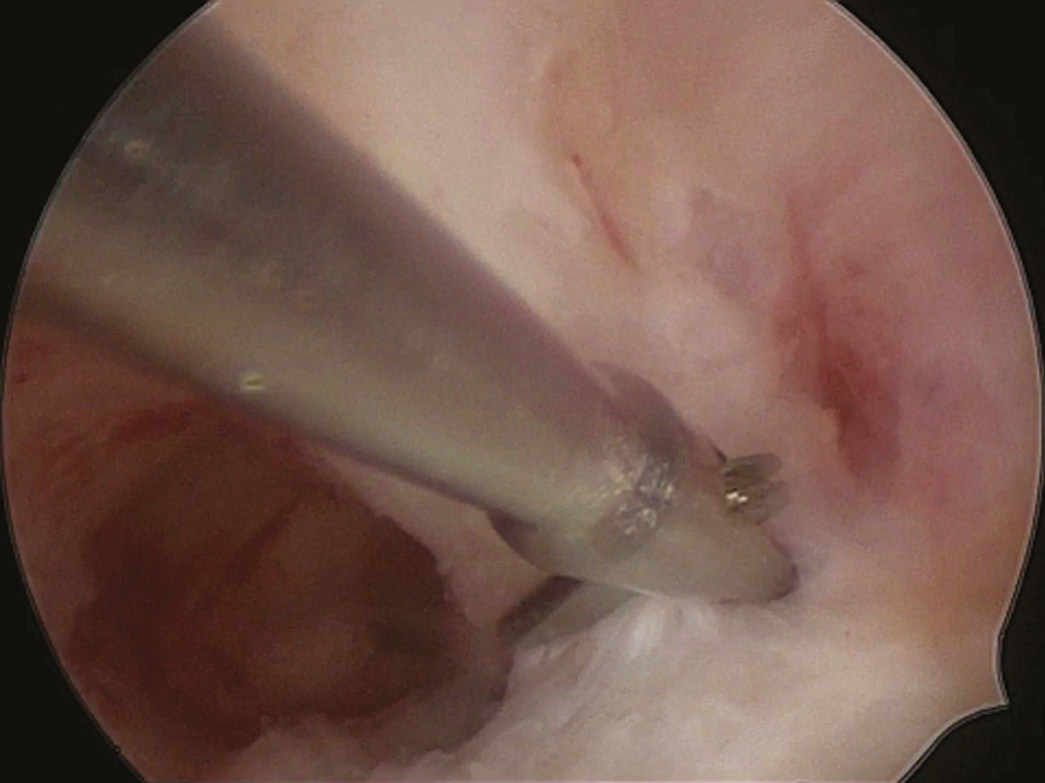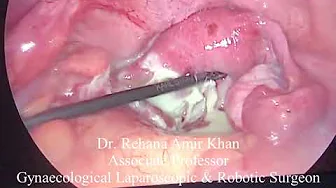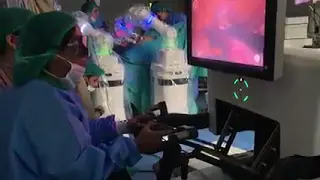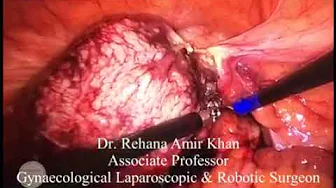Treatment of Adhesions
TREATMENT OF ADHESIONS
Consult The Best Laparoscopic Surgeons In Lahore For Your Adhesions treatment

Adhesions are bands of scar tissue that connect two normally separate surfaces of the body.
Scar tissue formation is the body's repair mechanism in response to tissue destruction caused by surgery, infection, injury (trauma), or radiation.
Adhesions can affect the female reproductive organs (ovaries and fallopian tubes) in patients who have under gone open surgery for cyst, fibroid, tubal pregnancy or because of infection. They can cause a range of problems, including:
Adhesions can also lead to a complex problem called adhesion related disease (ARD).
Sticking is a common problem. Adhesions occur in up to 93% of people who have had abdominal surgery. Intra-abdominal adhesions also develop in 10% of people who have never had surgery, that are because of infection
Adhesion Diagnosis
Chronic pain with adhesions can be difficult to properly diagnose. Common diagnostic tests like blood tests, X-rays, CT scans, MRIs, and ultrasounds cannot diagnose adhesions. Hysterosalpingography (X-rays of the uterus and fallopian tubes) may help diagnose adhesions in the uterus or fallopian tubes.
Based on your symptoms, your doctor will order appropriate diagnostic tests to rule out other conditions that may have similar symptoms.
If the results of these tests are normal or negative for abnormal pathology, diagnostic laparoscopy may be appropriate. This is the only test that can confirm the presence of sticking. If adhesions are found, doctors can usually release them in the same surgery.
Development of adhesions
Adhesions occur when the body tries to repair itself. However, your body may have the usual reaction after:
TREATMENT OF ADHESIONS
Symptoms of adhesions
Although most adhesions are painless and do not cause complications, they cause small bowel obstruction in 60 to 70 percent of adults and are thought to contribute to the development of chronic pelvic pain.
Adhesion-related disorders (ARDs) are a group of symptoms that can arise from adhesions. Patients with ARD often have chronic abdominal pain.
Typical adhesions develop within the first few days after surgery, but symptoms can persist for months or even years. Symptoms may occur primarily in one area of the abdomen but are often general, vague, "colic" and difficult to spot. This means that ARD can be difficult to diagnose.
Symptoms of ARD may include:
Other bowel problems may include:
Women may have gynecological problems, which may increase anxiety and self-esteem issues that women with this condition may already experience.
ARD symptoms can be mistaken for signs of another disease. It can include a whole host of other potential diagnoses, such as chronic fatigue syndrome, endometriosis, irritable bowel syndrome, fibromyalgia, depression, and anxiety.
Adhesion Risks And Complications
Adhesion may:
TREATMENT OF ADHESIONS
Treatment for Adhesions
Adhesions can be treated with laparoscopic (keyhole) surgery, called adhesion degeneration. Cut the adhesions with ligassure/laser or electric current.
Laparoscopic treatment of adhesions
People with adhesion symptoms may consider laparoscopic surgery. The advantage of this surgery is that only a small incision (incision) is required, which is why it is also called "keyhole surgery." Laparoscopy is the method of choice for infertility surgery because the risk of new adhesion formation is minimal.
Laparoscopic adhesiolysis improves the quality of life in women with chronic pelvic pain due to adhesions, treat the fertility after dissolving the adhesions around the tubes and ovaries, to treat intestinal symptoms(bloating after meal). In treating extensive adhesions, the procedure has shown results similar to more invasive forms of surgery. However, it can be time-consuming (the process can take two to four hours), technically difficult, and involve some risks. Adhesion barriers (commercially manufactured) placed during surgery can reduce the formation of adhesions.
Laparoscopic surgery is not just a technique its an art to treat everything without damage.
Our Expert Gynecological Laparoscopic surgeon in Lahore treating women for a decade now. Book an appointment today for a healthy future..!!!!!
Adjunctive therapy after the adhesions dissolves, is used to prevent the development of intrauterine adhesions.
Most women who choose to undergo laparoscopic adhesiolysis:
Non-surgical treatment of adhesions
Alternatives to surgery include:
While medications may help, they are not a panacea. They can cause side effects, can be ineffective, and are often empirical(psychological support only).
You should discuss this treatment with best Gynecologist in lahore




